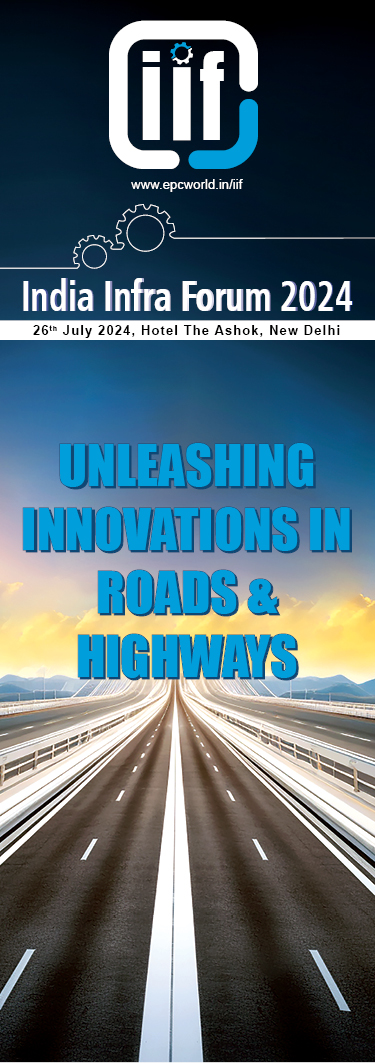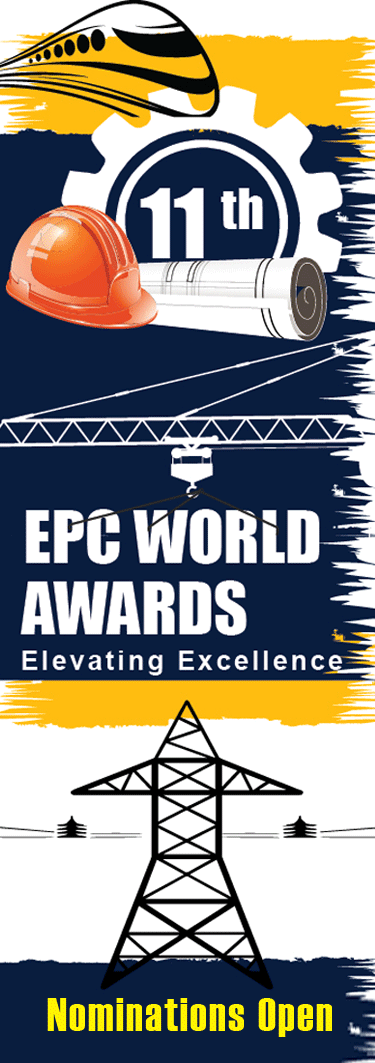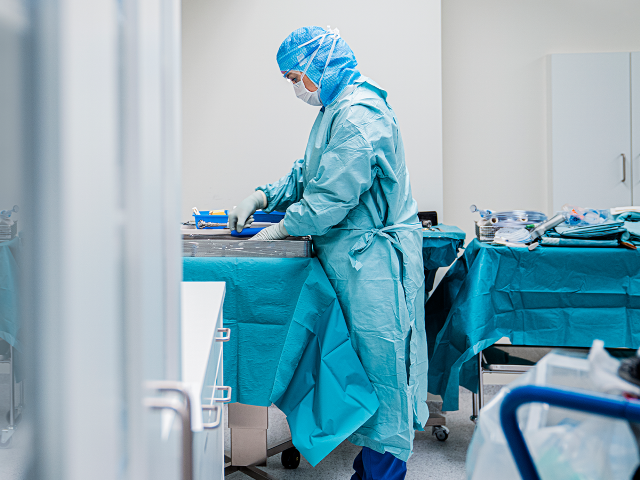Till the Pandemic hit us the awareness of PPE was at its nascent stage. But now not only the awareness but the usage of PPE has increased manifold. This has given an increase impetus to the PPE sector and with investment in infrastructure on card the PPE sector is expected to clock a healthy growth
Personal Protective Equipment! Does it require any introduction? By now, the havoc and painful death created by Covid-19 has made us all aware of personal protective equipment, yes the mask and the gloves we wear. To it we can also add sanitiser. One of the interesting facts that has emerged is even after vaccinating twice to boost our immunity from possible invasion from Covid-19, the government and the medical fraternity has made it a must to wear mask to reduced further chances of invasion. Penalty has been imposed on those who are not wearing a mask. Such is the importance of personal protective equipment in saving one’s life. “What followed, is a remarkable journey of collaboration between governments at the central and state levels, industries and workers to revamp existing production lines to manufacture a completely unknown product, from scratch. From 0, India now produces nearly 4.5 lakh PPE kits every single day, witnessed 56 times growth,” says Asif Iqbal, National Sales Head, KARAM Industries.
Personal Protective Equipment are more famously known by its acronym PPE. “Post Covid, I personally believe that PPE as a term is widely spread now,” says Viraj Kohli, Director - Sales and Marketing, Uviraj Group India. Viraj Kohli continues, “Pre-covid, no one knew what PPE was. Medical although is still one part of the entire PPE range. PPE covers a huge range of products for different industries covering everything from head to toe”. PPE are not limited to mask, gloves and sanitiser but offers a huge range of protective equipment to safeguard the labourers, semi skilled workers, engineers, the skilled workers, and others working in hazardous conditions in all the sectors. There are the shoe and head covers which provide a barrier against possible exposure within a contaminated environment. Then there are the safety eye wears (goggles) which shield the wearer's eyes from impact hazards such as flying fragments, objects, large chips, and particles. Goggles fit the face immediately surrounding the eyes and form a protective seal around the eyes. This prevents objects from entering under or around the goggles. Then there are the face shields which help in protecting the entire face or portions of it from impact hazards such as flying fragments, objects, large chips, and particles. The helmets, the hard caps, the bump caps aid in protecting the head against materials falling from a height or swinging objects or knocking against stationary objects. Then are ear plugs, ear muffs, hearing bands to protect the workers inner ears from getting damage, who are engaged in work that exposes them to noise that equals or exceeds 85 dBA. We can add few more to this list, such as height and access protection, body protection and others.
The market for PPE which was increasing substantially in pre Covid-19 period is now expanding rapidly. According to Union Textiles Minister Smriti Irani, India produced more than 60 million PPEs and almost 150 million N-95 masks till October 2020, from zero in March 2020 and exported more than 20 million PPE and over 40 million N-95 masks. According to TechSci Research report, “India Personal Protective Equipment Market By Category, By Industry, By Distribution Channel, By Region, Competition, Forecast & Opportunities, 2026”, India personal protective equipment market is projected to grow at a CAGR of more than 16% during 2021 - 2026 on account of increasing awareness towards worker health and safety, increasing product innovations, and rising incidence of various diseases such as Covid-19. Moreover, increasing number of manufacturing units and construction projects in India are also positively influence the country’s personal protective equipment market. “As per the reports, the global PPE market is anticipated to reach USD 81.35 billion by 2026. The market growth is propelled majorly by the increasing concerns of employers over the safety of their employees. Nowadays employers are more responsible for offering a healthy and safe workplace for their workers. Employees working at industrial sites are prone to different forms of hazards; they are likely to come across sharp objects, flying sparks, unbearable loud noise, falling objects, and chemicals that could cause them fatal injuries. India realized the critical role of PPE in combating this pandemic, wherein the Ministry of Textiles stepped in to lead the assessment of the availability of all protective wears for our frontline health workers,” says Asif Iqbal.
Pandemic does the Awareness
Before Covid-19 the awareness about PPE was in its nascent stage. Workers and supervisors took safety casually. But now Covid-19 has made personnel safety prime priority. As per the directive principle of state policy of the Constitution of India, the Government is committed to regulate all economic activities for management of safety and health risks at workplaces and to provide measures so as to ensure safe and healthy working conditions for every working man and woman in the nation. To address, disseminate and implement Safety-related legislation in the country the Government of India established the National Safety Council way back on 4th March 1966. 4th March is observed as National Safety Day, every year. And starting from 4th March a one-week program National Safety Week is conducted to raise awareness about Safety. To disseminate information about Safety, NSC conducts various awareness campaigns through different mediums. “Safety awareness, in general, in India is not much. However, every second this is improving. Various kinds of trainings are provided by Uviraj either at our own premises or on work sites. We have a special training centre where we provide trainings for workers to understand how the product is used,” says Viraj Kohli.
“The value of human life is a major concern in our industry. Though in the nascent stage, occupational safety & health still has a long way to go. It is treated as an unnecessary expenditure, which results in the underrated value of human life, forcing safety measures a backseat. Training and proper usage of Personal Protection Equipment is yet another area of concern that should not be ignored. The real challenge lies in how appropriately the gear is worn and used. A must say…if the equipment is used rightfully, this life guarding mechanism can complement growth by increasing the productivity and confidence of the personnel working in a hazardous condition,” says Asif Iqbal.
Technology taking shape
“Technology disruptions have taken over the life of every individual in some way and the safety industry is also on its way to being seriously exposed to this technology transformation,” says Asif Iqbal. Technology has now slowly crept into PPE. Nowadays PPE comes integrated with sensors. These sensors fitted PPE are popularly known as Smart PPE. These Smart PPE are connected to the Internet or other devices, such as Bluetooth, to deliver real-time safety information to workers in the field as well as managers remotely. These wearables can track movements, send voice messages, monitor body temperature, issue alerts and record audio and/or video. They’re often paired with a cloud-based analytics platform, and sometimes they pair with a smartphone apps. “Most of the Personal Protective Equipment offered by KARAM is Category 3 products meaning that their incorrect usage could compromise the life of a person. These products need to be fully inspected before each use, ensuring their correct working to protect the user during unfortunate situations. KARAM has introduced the next generation safety equipment that is linked to an app (KARE) that triggers the user when its inspection is due. Additionally, when the user scans the QR code/RFID on the product label, he has an access to a plethora of information, all related to the product in the form of a knowledge tree. The user can easily access instruction manuals, technical data sheets and get the correct areas of application of a particular product. At KARAM, our focus is to constantly do something new that makes things easy for the end-user at any stage,” says Asif Iqbal.
Overcoming Challenges
Paucity of manpower, counterfeit PPE, low awareness are a few of the challenges facing the PPE sector. The overcome the paucity of manpower PPE players have set up their own training centers. “Our industrial safety training unit KTC (KARAM Training and Consultancy) specializes in competency building in areas of safe work-at-height, confined space & rescue in India & Internationally. KTC specializes in competency building in areas of safe Work-at-Height, Confined Space working & Rescue in India & SAARC countries. We are accredited to various respected international training bodies namely TRARAsia, Global Wind Organization and Gravity Training. We have earned our reputation through a commitment to professionalism and delivering high-quality training courses by a team of highly trained and dedicated safety professionals,” says Asif Iqbal. According to the report by ASPA, a self-regulated industry body of anti-counterfeiting and traceability solutions providers, counterfeiting has risen steadily in the last few years, and exploiting the pandemic as a cover for their activities. “Surprisingly, as per recent reports by Authentication Solution Providers Association (ASPA), Counterfeiting incidents have increased 24 per cent in the country in 2019 over the previous year, creating an over Rs 1-lakh-crore dent in the economy. The alarming increase in the sales of fake medical equipment and supplies indicates that criminals will stop at nothing to make a profit. The illicit trade in such counterfeit medical items including PPE equipment especially during a public health crisis like Covid-19 shows a total disregard for people’s wellbeing, or their lives,” says Asif Iqbal. “The majority of the market share is covered by counterfeit products or "Others" if you call it,” says Viraj Kohli.
To overcome counterfeit, KARAM has also been conducting regular awareness generation exercises for not only its partners but dealers and consumers at large through on-ground and virtual mediums. “At KARAM, we have a Zero Tolerance Policy against duplicity of KARAM Products. We would not allow anyone to play with human lives and safety and we will continue taking strict action against such manufacturers or suppliers of counterfeit safety products. With combined efforts of KARAM and local authorities, KARAM has been able to disrupt the fraudulent activities of such counterfeiters who have been selling fake PPE. KARAM has also developed a KARAM Products App that helps the consumers recognize KARAM’s genuine products. The app is available at both Google Play Store and Apple App Store,” says Asif Iqbal.
While Uviraj Group India has taken the help of technology to overcome counterfeiting of their products. “By investigating into breach of IP. Various rackets have been busted in the past and more the awareness, better the understanding for the end consumer. We have a system where even if the product comes back to us 5 years down the line, we can easily trace out its details. We have a specialised webbing on all our harnesses that can help us easily identify if the product has been made at our facility or not,” says Viraj Kohli.
Enough demand for growth
Currently the prime growth driver for the PPE sector is the health infrastructure sector. “As per the reports, the global healthcare personal protective equipment (PPE) market is expected to grow from $5.99 billion in 2019 to $7.83 billion in 2020 at a compound annual growth rate (CAGR) of 30.80%. The rising cases of Covid-19 have coupled with the presence of stringent regulations regarding the safety of healthcare personnel are anticipated to bolster the product demand over the coming years. Moreover, several small- and large-scale manufacturers in the country have either launched new production lines or have re-engineered the existing ones to boost the availability of critical supplies, including PPE, during the pandemic,” says Asif Iqbal. Though the complete focus of the government is on increasing the health infrastructure of the country, the government is also focusing on infrastructure to keep the economy aloft. The government has announced Rs 103 trillion infra projects besides providing about Rs 1.70 trillion for transport infrastructure and accelerating highways construction. The government is taking steps to revive sectors such as construction, automotive, chemical, medical, pharmaceutical, oil & gas, steel & fabrication, where major demands for PPE comes from. Through laws the government too has made it mandatory for PPE in these entire sector. “As we all know, India is one of the world’s fastest-growing economies undergoing rapid industrialization, giving momentum to the PPE Industry. Currently, the PPE Industry in India is worth Rs 7800 million. And it is estimated to grow near about at a CAGR of 14% by 2020 and reach USD 2 billion by 2024. Growth Drivers like rapid industrialization, demographic advantage, and Regulatory compliance creates a never-ending demand for technological advancement to safeguard workers against workplace threats,” says Asif Iqbal.
With stringent laws mandating compulsory wearing of PPE, the industry is all set to see its golden period.






